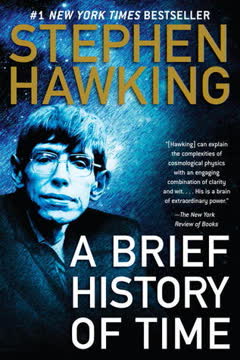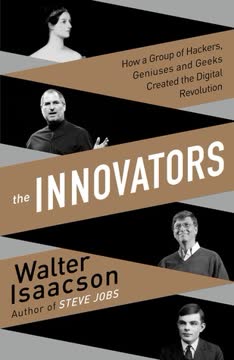重点摘要
1. 爱因斯坦的早年生活塑造了他独特的天才
普通成年人从不费心思去思考空间和时间的问题。
非从众与质疑。 爱因斯坦语言发展迟缓,加之对权威的反叛态度,造就了他独特的视角。这使他能够质疑他人视为理所当然的空间与时间的基本假设,最终催生了他的开创性理论。
早期影响。 诸如对指南针的好奇以及母亲鼓励他学习小提琴等关键经历,激发了他对宇宙和谐之美的敬畏与欣赏。这些早期影响培养了他的直觉和创造性思维。
教育与反叛。 爱因斯坦在德国僵化权威的教育体制中挣扎,这激发了他的怀疑精神和独立性。对死记硬背和盲目服从的拒绝,成为他科学与生活态度的鲜明特征。
2. 爱与关系激发了爱因斯坦的创造力
我相信爱比责任感更能成为良师,至少对我而言如此。
热情的联结。 爱因斯坦的个人生活,尤其是与米列娃·马里奇和埃尔莎·爱因斯坦的关系,在他的智力发展中起到了重要作用。这些关系为他提供了情感支持、思想激荡和观点交流的平台。
米列娃·马里奇的影响。 米列娃是他的第一任妻子,同为物理学学生,曾与爱因斯坦合作早期研究。他们的学术伙伴关系和对科学的共同热情,助推了他开创性理论的诞生。
埃尔莎·爱因斯坦的支持。 作为第二任妻子,埃尔莎为他提供了家庭稳定和情感支持,使他得以专注于科学事业。她务实的性格和对他需求的理解,营造了和谐的工作环境。
3. 奇迹之年:物理学的革命
我向你保证四篇论文。
1905年:分水岭。 1905年,爱因斯坦发表了四篇划时代的论文,彻底改变了物理学。这些论文涵盖了光的量子性质、原子的存在以及狭义相对论等主题。
关键论文:
- 光电效应: 提出光由称为量子(光子)的离散能量包组成。
- 布朗运动: 提供了原子和分子存在的数学证据。
- 狭义相对论: 引入了时空概念、同时性的相对性以及著名的方程E=mc²。
对物理学的影响。 这些论文奠定了20世纪物理学两大支柱——相对论和量子理论的基础,也确立了爱因斯坦作为科学领军人物的地位。
4. 广义相对论:将引力视为时空的弯曲
生活就像骑自行车。要保持平衡,必须不断前进。
引力的重新定义。 1915年发表的广义相对论,彻底革新了我们对引力的理解。它提出引力不是一种力,而是由质量和能量引起的时空弯曲。
思想实验。 爱因斯坦通过诸如想象电梯在太空中加速等思想实验,发展了他的理论。这些实验帮助他形象地理解了引力与加速度的等效性。
验证与影响。 1919年日食观测证实了光线弯曲现象,使爱因斯坦声名鹊起。广义相对论深刻影响了我们对宇宙的认知,包括黑洞、引力波和宇宙膨胀等领域。
5. 量子力学:爱因斯坦对不确定性的困惑
愿无畏长存!它是我在这个世界上的守护天使。
量子革命。 虽然爱因斯坦通过光电效应推动了量子革命,但他对其含义日益感到不安。他反对宇宙本质上是概率性和不确定性的观点。
哥本哈根诠释。 爱因斯坦质疑量子力学的哥本哈根诠释,该诠释认为观测行为影响现实,粒子在被测量前没有确定属性。
“上帝不掷骰子。” 爱因斯坦著名地拒绝了量子力学的概率性质,坚信必有更深层次的确定性现实,支撑着表面上的量子随机性。
6. 统一场论的追求:毕生的使命
对权威的盲目信仰是对真理最大的敌人。
力的统一。 生命的最后三十年,爱因斯坦致力于寻找统一场论,将引力和电磁力纳入同一框架。他希望此理论也能调和量子力学与相对论。
数学之美。 爱因斯坦坚信自然法则应当简洁优美。他追求的理论既要美观又能与所有已知物理现象相符。
未竟的理想。 尽管不懈努力,爱因斯坦未能完成统一场论,但他的探索激励了后世物理学家,成为现代物理的重要目标。
7. 名声与重负:公众生活的平衡
命运为了惩罚我对权威的蔑视,使我自己成为权威。
骤然成名。 1919年广义相对论的验证使爱因斯坦一举成名,成为科学偶像和天才象征。
公众形象。 爱因斯坦积极承担公众角色,利用影响力倡导和平、社会正义等理念。他标志性的蓬乱头发、邋遢衣着和机智言论,塑造了独特的公众形象。
平衡之道。 爱因斯坦努力在科学研究与名声压力间寻求平衡,常常通过独处寻求安宁,应对持续的关注带来的压力。
8. 爱因斯坦的上帝观:敬畏、奇迹与决定论
我想知道上帝的想法,其余都是细节。
宇宙宗教。 爱因斯坦的宗教信仰根植于对宇宙之美与秩序的敬畏。他相信宇宙智能通过自然法则显现。
斯宾诺莎的影响。 爱因斯坦深受巴鲁赫·斯宾诺莎哲学影响,斯宾诺莎认为神即自然本身。他拒绝个人神干预人类事务的观念。
决定论。 爱因斯坦是坚定的决定论者,认为一切事件皆有因果决定。他否认自由意志及上帝掷骰子的说法。
9. 难民身份:在美国找到归宿
愿无畏长存!它是我在这个世界上的守护天使。
逃离纳粹。 随着希特勒和纳粹党的崛起,爱因斯坦被迫逃离祖国,放弃德国国籍,寻求美国庇护。
普林斯顿与研究所。 爱因斯坦在新泽西普林斯顿高级研究院找到了新家,度过生命最后二十年,继续科研并倡导社会正义。
美国价值观。 爱因斯坦深切珍视美国的自由与包容,积极支持公民自由,反对麦卡锡主义及各种压迫。
10. 和平与社会正义的捍卫者
想象力比知识更重要。
和平主义与世界政府。 爱因斯坦终生主张和平,认为战争毫无意义且具破坏性。他倡导建立世界政府,以防止未来冲突。
犹太复国主义与身份。 爱因斯坦坚定支持犹太复国主义,支持在巴勒斯坦建立犹太家园,为受迫害的犹太人提供避难所,保护犹太文化。
社会正义。 爱因斯坦热衷于社会正义和平等,公开反对种族主义、歧视和经济不平等。
11. 终章:安息的心灵
人为延长生命毫无品味。我已尽己所能,是时候优雅地离开了。
晚年岁月。 晚年,爱因斯坦继续致力于统一场论研究,倡导和平与社会正义。他依然是备受爱戴的人物,以才华、人性和坚定信念赢得尊敬。
逝世与遗产。 1955年4月18日,爱因斯坦辞世,享年76岁。其大脑被取出用于科学研究,骨灰撒于不公开之地。
永恒影响。 爱因斯坦的遗产远超科学成就,他是天才、创造力与道德勇气的象征,激励一代又一代人质疑、想象并为更美好的世界而努力。
最后更新日期:
FAQ
What's Einstein: His Life and Universe about?
- Comprehensive Biography: The book offers a detailed account of Albert Einstein's life, from his early years in Germany to his later years in America.
- Scientific Achievements: It explores his groundbreaking theories, including the theory of relativity and his contributions to quantum mechanics.
- Personal and Political Life: The narrative intertwines his scientific work with his personal relationships and political activism, highlighting his influence on society and culture.
Why should I read Einstein: His Life and Universe?
- In-depth Research: Walter Isaacson's biography is based on extensive research, including personal letters and documents, providing a nuanced portrait of Einstein.
- Engaging Narrative: The book is written in a compelling style that makes complex scientific concepts accessible to general readers.
- Cultural Context: It places Einstein's work within the broader context of the 20th century, exploring his impact on science, culture, and politics.
What are the key takeaways of Einstein: His Life and Universe?
- Interconnection of Life and Science: Einstein's scientific breakthroughs were deeply connected to his personal life and moral beliefs.
- Revolutionary Ideas: His theories, particularly relativity, challenged existing paradigms and reshaped our understanding of physics.
- Importance of Imagination: Einstein believed that creativity and innovative thinking are crucial for scientific advancement.
What are the best quotes from Einstein: His Life and Universe and what do they mean?
- "Life is like riding a bicycle...": Reflects Einstein's philosophy on perseverance and continuous progress.
- "A foolish faith in authority...": Emphasizes the necessity of questioning norms to seek genuine understanding.
- "Imagination is more important than knowledge.": Highlights the value of creative thinking in scientific discovery.
How did Einstein's early life influence his scientific career?
- Nonconformist Upbringing: Encouraged to think independently, fostering his later scientific innovations.
- Education Challenges: His disdain for rote learning shaped his belief in curiosity over memorization.
- Influential Relationships: Friendships with intellectuals provided a supportive environment for his ideas.
What role did Einstein's personal relationships play in his scientific work?
- Supportive Partnerships: Relationships, particularly with Mileva Mari and Elsa, provided intellectual and emotional support.
- Struggles with Authority: Contentious relationships fueled his rebellious spirit and desire to challenge norms.
- Impact of Family Dynamics: Balancing family pressures with scientific pursuits reflected the complexities of his life.
How did Einstein's theories change the understanding of physics?
- Theory of Relativity: Revolutionized concepts of space and time, showing their interconnectedness.
- Quantum Mechanics Contributions: Work on the photoelectric effect laid the groundwork for the field.
- Unified Field Theory: Efforts to reconcile gravity with electromagnetism continue to influence modern physics.
What was Einstein's view on quantum mechanics as discussed in Einstein: His Life and Universe?
- Skepticism of Quantum Theory: Critical of the Copenhagen interpretation, believing in a deterministic universe.
- EPR Paradox: Questioned the completeness of quantum mechanics, challenging "spooky action at a distance."
- Reality and Locality: Maintained that physical reality exists independently of observation.
How did Einstein's political beliefs influence his life and work?
- Advocacy for Civil Rights: Vocal supporter of civil rights, particularly in the U.S., opposing racism.
- Opposition to Militarism: Staunch pacifist, advocating for disarmament and world peace.
- Zionism and Jewish Identity: Supported a Jewish homeland while wary of militaristic nationalism.
What impact did the 1919 solar eclipse have on Einstein's fame?
- Experimental Validation: Confirmed his theory of general relativity, validating his predictions about light bending.
- Public Fascination: Captivated the public and media, catapulting Einstein to international fame.
- Cultural Impact: Symbolized a shift in scientific understanding, reshaping public perceptions of science.
How did Einstein's views on nationalism evolve throughout his life?
- Early Assimilation: Initially skeptical of nationalism, viewing it as divisive.
- Zionist Support: Became a supporter of Zionism after experiencing anti-Semitism.
- Critique of Nationalism: Believed it could lead to tyranny, advocating for global unity.
What is the legacy of Albert Einstein as presented in Einstein: His Life and Universe?
- Cultural Icon: Symbol of intellectual achievement and humanitarian values.
- Influence on Science and Society: Contributions to physics and advocacy for peace reflect a broad legacy.
- Enduring Relevance: Ideas continue to resonate in contemporary discussions about science and philosophy.
评论
《爱因斯坦:他的生活与宇宙》被誉为一部详尽且研究深入的传记,全面呈现了爱因斯坦的个人生活、科学成就及其对物理学的深远影响。读者赞赏艾萨克森以通俗易懂的语言阐释复杂理论的能力。书中涵盖了爱因斯坦从童年到晚年的整个生命历程,突出展现了他的好奇心、特立独行以及人道主义精神。尽管部分读者觉得科学部分较为晦涩,但大多数评论者都欣赏书中引人入胜的叙述风格,以及对爱因斯坦性格、人际关系和文化意义的深刻洞见。
Similar Books






















